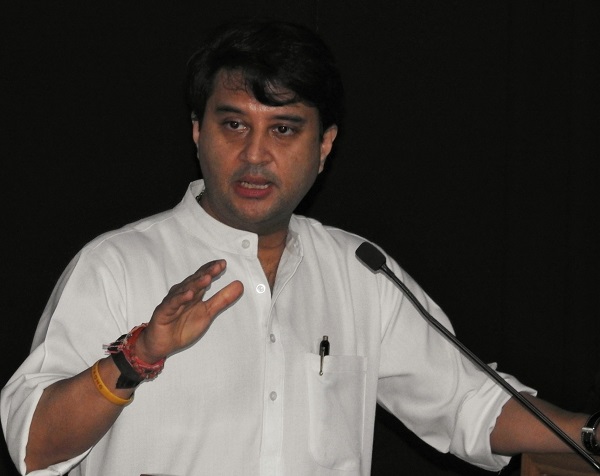New Delhi, (Asian independent) Of the humongous Rs 62,000 crore debt on the books of Air India when it was handed over to the Tatas, the Government of India has closed its part of Rs 47,000 crore by paying off all the banks involved.
The Tatas took over Rs 15,300 crore of debt where they have since renegotiated terms, and refinanced it by bringing in new lenders. Civil Aviation Minister Jyotiraditya Scindia confirmed this in a conversation with IANS Editor in Chief Sandeep Bamzai on Wednesday.
Scindia said, “The Tatas paid Rs 2,700 crore cash and took over Rs 15,300 crore of the airline’s debt. We have settled the balance amount of Rs 47,000 crore with all the lenders. The deal is now complete and I believe this is a very big achievement.”
On August 31, 2021, the airline’s total debt stood at Rs 61,562 crore, out of which around Rs 47,000 crore was transferred to AIAHL. The airline also had about Rs 15,000 crore excess liabilities towards unpaid fuel bills and other operation creditors.
Scindia said that Tatas are very excited with their turnaround plans with 141 aircraft (Air India fleet) out of India’s total of 715 aircraft. He reckoned that this fleet size in India would double within the next five years as all the airlines, including newbies Jet Airways (returning to the skies) and Akasa Air, have massive roll out plans. Pursuing the reform agenda in aviation, his next bold gambit is leasing of another set of airports, this time round another eight to nine.
Scindia said, “What we did was transfer the Rs 47,000 crore to a special purpose vehicle, Air India Asset Holding Ltd. The interest service outgo on the debt and other liabilities was extremely high and it was decided to square it off permanently. All told about Rs 61,131 crore was cleared at the time of the deal.”
Scindia brimming with ideas for the aviation sector is thinking of new policies which make the system more organised and equally more dynamic. For instance, immediate on his agenda is leasing of at least 8-9 more airports.
As he said, “Let me categorically insist as I did in the Parliament the other day that these airports are not being privatised, they are being leased for a 50-year period. Not only are they going to generate revenue for the government this way, but they will guarantee upgrading of these airports. I think this is the best model going forward. You will hear of us calling for bids in the next round shortly. On charges of privatisation, let me tell you that leasing will actually garner revenues of Rs 904 crore per year for AAI as lease fee for the first round of six airports, and as much as Rs 2,322 crore has already reached government accounts in this case. We expect a similar windfall when we do the next round of leasing.”
On the same lines, he is excited with the response he has got on his call for reducing VAT on ATF (aviation turbine fuel).
“I requested the chief ministers to reduce VAT and I have found that as many as 12 CMs and an LG have come forward with cuts to boost connectivity and revenue. Andhra Pradesh and Kerala have reduced VAT and there is a 15 per cent bump up in connectivity in a quarter. J&K has reduced VAT from 26 per cent to 1 per cent and the number of aircraft landing there and refuelling has gone up by 360 per cent. This reform measure will only widen and deepen the aviation sector in India,” Scindia said.
His next big play is his ambitious drone policy where he averred that 16-18 indigenous startups with cutting-edge technology will be at the vanguard of change.
“At the ministry, we are in sync with the PM’s vision to make India a global drone hub. The PLI scheme will drive both manufacturing and services in this sector. Equally, 12 different ministries, including agriculture, mining and rural, will create the demand for these drones. There is blue sky available in this sector and my interface with many of these startups which want to participate convinces me that we will build a constructive eco-system in this field. With the active participation of the stakeholders of the drone industry and the Government of India, the drone industry is set on a path of exponential growth. The government will enable the continuity of this accelerated drone adoption by easing drone regulations and through drone literacy via programmes such as Drone Shakti and Kisan Drones,” the minister said.








